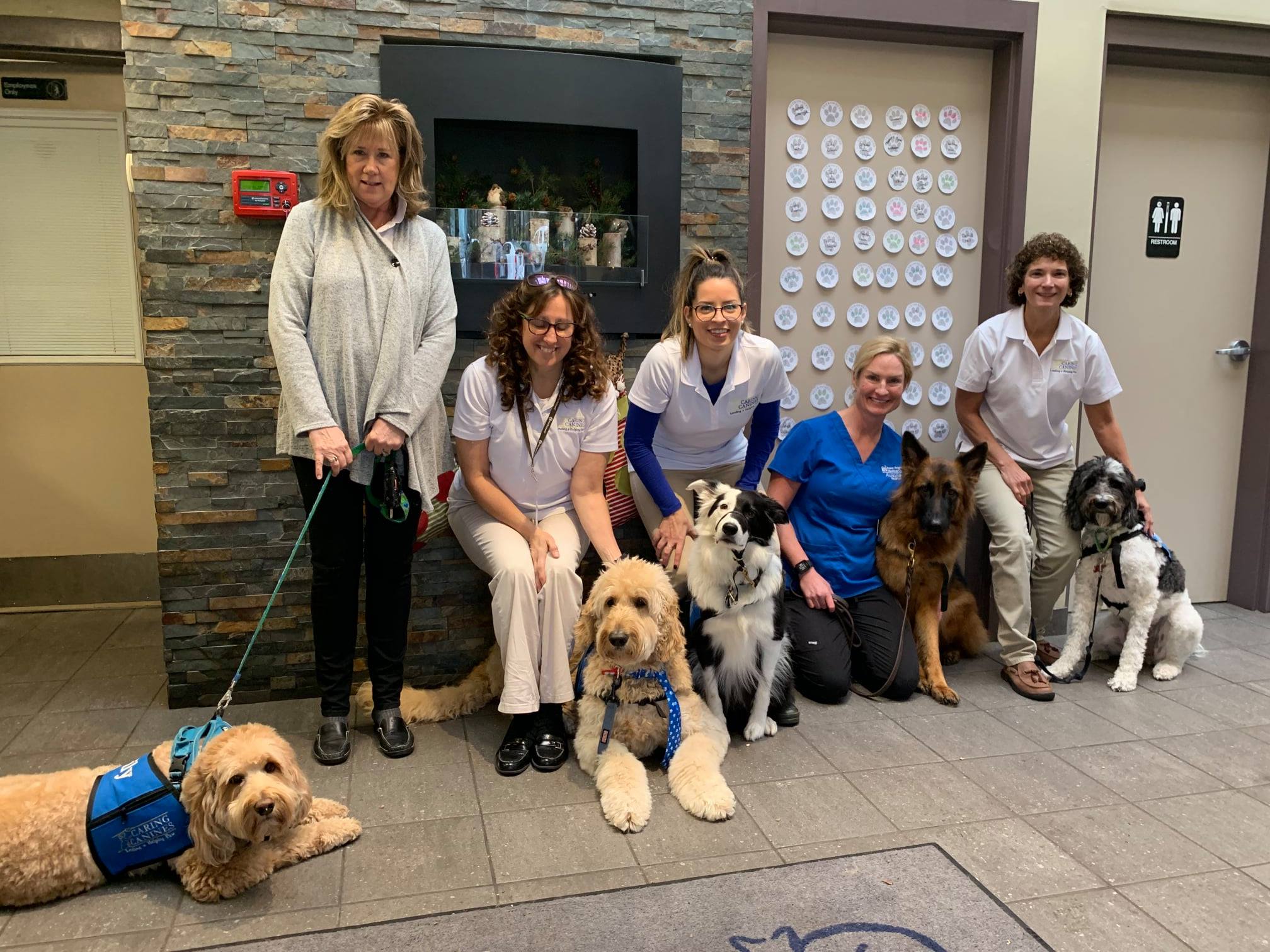ANNAPOLIS, Md. — Maryland legislators are introducing a bill that would allow for certain support dogs to assist veterans participating in a rehabilitation process through the Veterans Treatment Courts.
These dogs provide companionship and support to the veterans in an effort to minimize the stress and anxiety that can come with judicial proceedings.
“Knowing the struggles that veterans have with PTSD and other traumas, I thought it was a perfect fit,” Sen. Bryan W. Simonaire, R-Anne Arundel, the bill’s lead sponsor, said at a Tuesday Senate Judicial Proceedings Committee hearing.
In order to be considered a therapy or facility dog, there are several criteria that need to be met.
A facility dog is a dog that has graduated from a nationally recognized assistance-dog organization and has been teamed with a facility dog handler.
A therapy dog needs to have received training in providing affection and comfort to individuals who need emotional support and also must have graduated from a program that certifies therapy dogs and their handlers.
Under this bill, a veteran conducting a status review with a judge, meeting with an attorney, or probation, pretrial or court case manager would be eligible for canine assistance in the counties that voluntarily agree to participate in the program, according to a state legislative analysis.
“I see the potential of the bill as being significant,” Bob Norton, president of the Maryland Military Coalition, told Capital News Service.
“This would be another door that would open up a pathway for veterans,” Norton added.
The first Veterans Treatment Court opened in Buffalo, N.Y., in 2008 and the courts are designed to help veterans rehabilitate and readjust to once again living life as a civilian keeping in mind some of the mental health challenges that many of them endure.
Currently, there are seven counties in Maryland with operating Veterans Treatment Courts and in fiscal 2020, 133 individuals participated in these programs, according to a state legislative analysis.
“The Substance Abuse and Mental Health Services Administration estimates that 1 in 5 Iraq and Afghanistan veterans suffers from PTSD or significant mental anguish,” Brian Smith, a Gulf War Combat Veteran, said in support of SB0007 at a Senate Judiciary Proceedings Committee Hearing Tuesday.
SB0007, and a crossfiled bill, HB186 sponsored by Del. Michael E. Malone, R-Anne Arundel, stipulates extending the current Court Dog and Child Witness Program, which was enacted into law during the 2020 legislative session.
That law allows dogs to support child witnesses in courtrooms statewide for those counties that elect to participate beyond the previous jurisdictions of Anne Arundel and Harford counties.
The program’s voluntary nature ensures that it will be a low expenditure bill.
The volunteer aspect is one of its most important elements because specifically trained handlers and dogs are required for its implementation and effect.
Facilities like the Dogwood Acres Pet Retreat with two locations in Maryland partner with the court system and help to provide some of the necessary handlers and canines through the Caring Canines Pet Therapy Program.
The initial Courthouse Dog and Child Witness Pilot Program was launched in 2016 in both the Anne Arundel and Harford County Circuit Courts.
At its infancy, the program only allowed for child witnesses testifying in criminal proceedings to be accompanied by a therapy or facility dog.
However, from 2016-2019 it was expanded to include child witnesses in civil proceedings and was also renamed the Court Dog and Child Witness Pilot Program.
“After a few years of observing, we believe there is enough resources to expand the program to help veterans,” Simonaire told Capital News Service.
The policy’s further expansion is dependent on the amount of requests and resources available.
The committee has not yet scheduled a vote but Simonaire said he is hopeful it will be voted on in early February.
“Our veterans were there when our country called, we should be there for them in their time of need,” Smith said.
“Give a veteran a second chance and give a dog a job,” Smith added.

